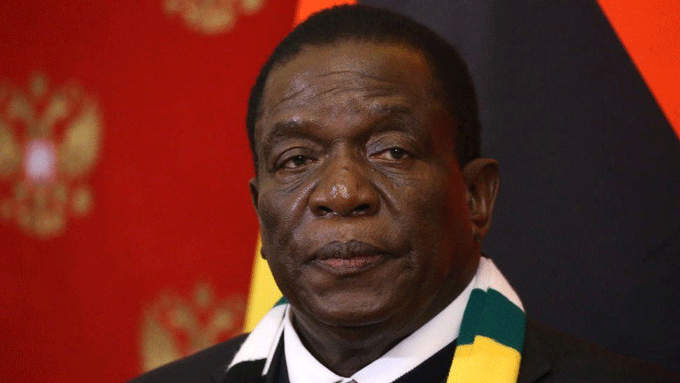
By Cyprian M Ndawana
DEAR President Emmerson Mnangagwa.
Your Excellency, over the years Zimbabwe has suffered massive all-round ruination. The country has been persistently pounded by corruption, almost henceforth her attainment of independence. Duly, the spectre of graft manifested back in 1986 with the National Railways Housing Scheme. Since then, the cancerous cells of corruption spread at an alarming rate.
It was followed, two years later in 1988, by the Willowvale Mazda Motor Industries scandal, dubbed Willowgate. Key perpetrators of the Willowgate decadency were ministers who should have been honourable. They were supposed to be well-grounded custodians of national coffers.
Yet, they were vulnerable. They succumbed to the lure of graft and conducted themselves like horrible monsters. Their arraignment before a commission of enquiry chaired by the late Justice Wilson Sandura was shameful.
Little wonder, one of the disgraced ministers gulped hemlock. He could not live with his soiled conscience.
Yet, thereafter, over 20 major scandals occurred, with the most recent ones being command agriculture and National Social Security Authority (Nssa) which happened in 2019, under the watch of the new dispensation.
Your Excellency, finance gurus estimate, albeit conservatively, that overall graft amounts to around US$76 billion.
- Chamisa under fire over US$120K donation
- Mavhunga puts DeMbare into Chibuku quarterfinals
- Pension funds bet on Cabora Bassa oilfields
- Councils defy govt fire tender directive
Keep Reading
It is ironic that a convict of the Willowvale scandal, in spite of his impairment of integrity, was recently given a Cabinet post.
Truly, action speaks louder than words. As I see it, the appointment is an eloquent cancellation of the said commitment to combating corruption.
It is absurd to blame sanctions while corruption convicts are retained in high offices of power and influence.
Apparently, the entire sovereignty years of Zimbabwe have been largely marked by plentiful socio-economic degradation.
She became so wrecked that she was essentially prescribed to undergo structural adjustment works.
Yet, even after the adjustments, the vile could not be cured, let alone slowed down.
Your Excellency, ever since the Structural Adjustment Programme, (Esap) which was backed by the international community two decades ago, Zimbabwe has been on the throes of an unprecedented socio-economic meltdown.
A number of subsequent programmes, notably the hyped Zimbabwe Agenda for Sustainable Socio-Economic Transformation (Zim Asset), also failed to prevail.
Yet, at independence in 1980, Zimbabwe was a combination of the glory that was ancient Greece and the grandeur that was Rome. When the Union Jack flag was lowered, never to be raised again, the country was the epitome of infrastructural development and orderliness.
She was the yardstick with which equity and modernity could be measured. All roads throughout the country, be they in Harare, Bulawayo, Mutare or even in small centres such as Rusape, Chivhu and Gwanda, were passable. They were tarred, well lit and signposted.
Harare was a marvel, through and through. It was the Sunshine City in the truest sense. All public amenities were functional with admirable reliability.
Provisions of public schools, transport, medical care, water, electricity, refuse collection and mail delivery were guaranteed.
Your Excellency, my generation can readily vouch that we could tell time not by looking at wrist watches, but at arrivals or departures of Salisbury United omnibuses.
They did not only adhere strictly to time tables, but were as well maintained as they were pleasantly clean.
Rarely did they break down on routes with passengers on board. Admittedly, nostalgia oftentimes overwhelms me.
It was a phase of life that I would be hugely grateful to experience yet again.
Actually, all the public sector transport operations, road, railways and airways, were efficient like clockwork, much to the contentment of commuters.
Industry and commerce were vibrant, with all cylinders firing.
There were no thorns and thistles that grew on commercial farms.
Wheels of tractors and combine harvesters rolled all year round, hence the accolade “breadbasket of Africa”.
Employment was no hassle. Essentially, all roads led to Zimbabwe. Foreign currency was obtainable from bank counters. It was the norm to retain to the bank whatever amount of foreign currency one was left with upon returning from external travels.
Your Excellency, methinks you also have fond memories of this fluent preoccupation era.
It was a source of national pride that the national flag carrier, Air Zimbabwe, then plied cross-continental routes, so as regional and domestic ones, with the regularity and punctuality of the heartbeat.
Sadly, that was then; fast forward to today, all what is left are shells that are gathering dust and rust.
It is dispiriting that the so-called bornfrees, who grew up after the all-round ruination, will never experience the convenience we the old timers owe to the colonial public works management procedures.
One among the many aspects that cannot be taken away from them is foresight.
Their planning, systems and procedures indeed were proficient.
Surely, the cholera outbreaks that claimed many lives in the high-density suburbs of Harare a decade ago were preventable.
- Cyprian Muketiwa Ndawana is a public speaking coach, motivational speaker, and speechwriter.











